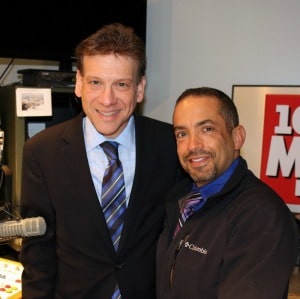
Banking On Business With The Power Of Radio
Ron Fried is a senior account manager with Connoisseur Media on Long Island, and one of his best accounts is TD Bank. It’s an account Fried has had for 11 years, and that’s due in large part to the relationship and trust he’s built with the bank’s vice president of marketing, Eric Fishon. Fishon places local buys that cover Westchester, Long Island, and the lower Hudson Valley. We spoke to both Ron and Eric about how radio is helping TD Bank build a great business.
RI: What is it about radio that drives customers through your doors?
Fishon: Radio is different than print or TV because you can actually touch a listener a lot differently. Local radio still has that good feel and touch of community, unlike satellite, TV, and print, where it’s visual or something very general. When we work with our radio partners, we get to be very distinct in what our goals are, really reaching out into the community. That’s something special you can do with radio. Radio is no longer just, “Hey, give me a spot and give me a schedule.” No radio stations work like that, especially not our radio partners. When I work with people like Ron and the team over at Connoisseur, we look at the goals for the bank, what we need to get out of a promotion, and we formalize a plan together. We don’t do cookie-cutter.
RI: What do you want to see radio people bring you?
Fishon: When I’m working in these local markets, I want to really have that feel good thing. I want my customer to have some sort of special experience. That’s what we look to put into a lot of our promotions — what’s in it for our customer? How does the TD Bank customer feel special? What are they getting that’s special? What are they getting that’s different from everybody else? We like to treat our customers as very special. Our customers are our bread and butter, our front line, our ambassadors.
RI: Can you tell us about one special experience that really clicked for you when you used radio?
Fishon: One idea that really works is called “Celebrate America.” It’s TD Bank’s annual fireworks event that we create and produce. We brought the radio group on as a media sponsor, and together we developed something really special. For example, tickets are only available at local TD Bank locations, so we do remotes and ticket blasts at bank locations where we want to see more traffic.
At the event, working with the radio stations, TD Bank customers and listeners got in a half hour earlier than the general public. We wanted to make sure they had the opportunity to get up close and personal for the concert and fireworks, to have the best seat in the house. This past year, we worked with the stations on social media campaigns, and we look to do more local social campaigns where we get people to tweet and post from the event. We actually wound up being the number five listing last year in local social posts in that time frame of July 4th.
RI: What do you do to measure the success of the campaigns when you use radio?
Fishon: When you’re using radio for a local market, you look at your audience size. How much traffic do you drive into your location? How much traffic do you drive to your event? We look at more than just how many people opened up an account. It’s how many people we touched. What was the reach? What was the demographic? One of the big things is how a radio station gives us a recap of the event, how many people were touched, and how many people we interacted with.
RI: Ron, what is it about the relationship you’ve developed with Eric and the bank that keeps it so strong?
Fried: I think it’s really just listening to what Eric and the bank’s objectives are. Eric has certain goals and initiatives for different events during the year. What it really comes down to, to make the relationship grow, is understanding his unique challenges, the obstacles that he has to jump through internally. I also have him meet with my whole team. Eric has developed a relationship not only with me, but with my promotions director, with my program director, and with a lot of the on-air personalities.
Eric will come and sit in our conference room and we’ll do brainstorming. He’ll let us know what his goals and objectives are. As a team, we find that having more heads in a room is better than just having a couple. Then we kick some ideas around. From there, we develop an action plan. We throw some things up on the board and from that we can figure out the logistics of what might work best.
Fishon: I think what Ron said is extremely important to highlight. It’s not just a phone call. It’s not just a buy. It’s not just an avail. It’s getting in a room with a program director and a general sales manager and the promotions director and the on-air talent and the promotions crew. These are the people that are actually going to be the ones activating your event. If the salesperson buys in and the sales managers buy in, that’s great, and that’s important, of course, and they give you great value, but to really get the activation, you want to get your frontline employees, the people who are actually going to be a part of it, to buy in and have ownership and skin in the game.
RI: Eric, if you were to give our readers advice about the right way to approach a client, what would you tell them?
Fishon: Really understand the person you’re pitching. Don’t send out that one sheet to all of your contacts saying, “Hey, if you’re interested, give me a call.” You’ve got to be more personalized to the needs of the company you’re going after. If that means saying to yourself, “You know what? This isn’t going to fit them. So, instead of me pitching them and not looking smart enough, let me not pitch this to them and I will pitch them on one that suits them better.” I have more respect for somebody like that, that says, “I am not going to even bother with asking you for this $5,000 buy because you’re not going to get out of it what you need.”
RI: For advertisers who aren’t using radio: How could you convince them to use more radio?
Fishon: Radio is still local. Local radio is still local radio. That’s important. If you’re trying to hit a niche market in a certain community, radio is the way to go, because you have this unique listenership, this unique area of people with the right demographics. Radio needs to show those advertisers that it’s not just all about the on-air 30-second or 60-second spot. It’s more about the relationship with the station.
As an advertiser, when Ron and the team put me in touch with other advertisers to help me grow my business, I think that’s even a bigger benefit. Sometimes they will say, “Hey, such and such is looking for a bank account,” or, “We think a good partnership with your event might be with XYZ.” Marrying us together sometimes forms really good relationships that I ordinarily wouldn’t be able to do myself.
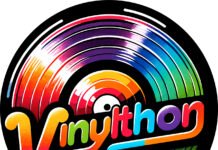
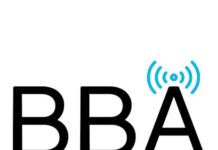
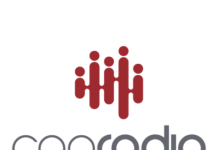
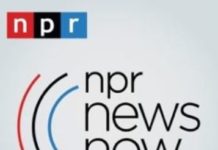


Well done. “Touching” an audience is about generating emotions with the ads, and, with a terrific, longer-term campaign “bonding” with that targeted audience.
(I will be forever grateful to Roy Williams – The Wizard – for making the branding/bonding distinction and re-frame.)